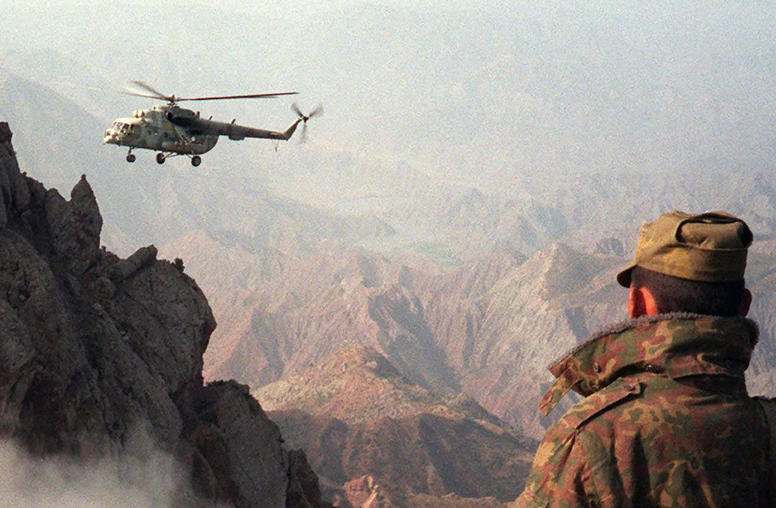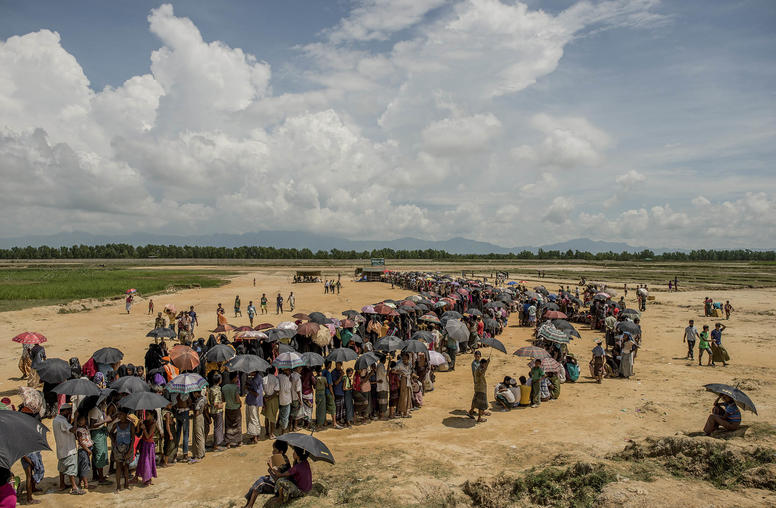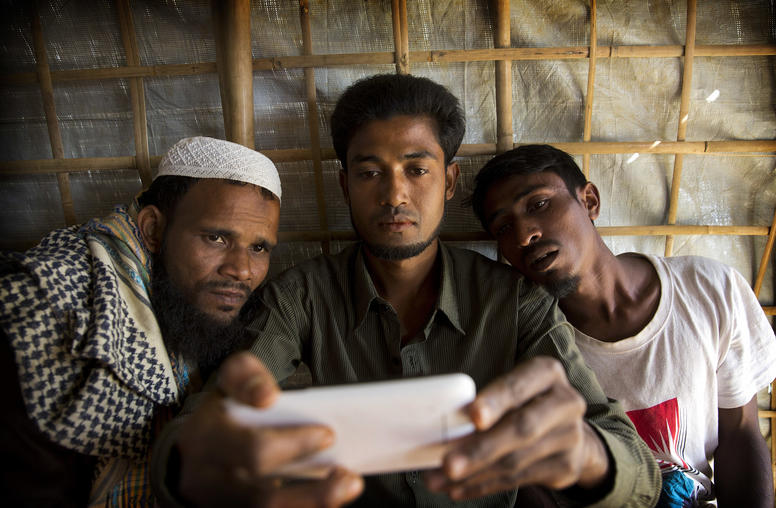Publications
Articles, publications, books, tools and multimedia features from the U.S. Institute of Peace provide the latest news, analysis, research findings, practitioner guides and reports, all related to the conflict zones and issues that are at the center of the Institute’s work to prevent and reduce violent conflict.

Connecting across historic divides
People who live amid violent conflicts suffer trauma–and even inherit it when that conflict has extended across generations. While trauma can harden us against our perceived foes, remarkably, people can use shared traumas to build connections, even with those we have seen as enemies.

Culturally Attuned Summary Compilation Episode
In this final episode of Culturally Attuned we travel around the world to hear stories from five seasoned practitioners on how to work and communicate effectively across cultural divides. From their parting advice we learn the importance of cultivating relationships with local counterparts that create trusting, inclusive, and mutually beneficial connections.

Leading with human-centered design
When we set out to help in some other culture or community, we have learned that we should shape our project through what practitioners call “human-centered design.” This doesn’t mean altruistically imagining our own design to fit the humans we think we see. It means investing in the community – with its members leading the design process.

Knox Thames on the Role of Religion in the Ukraine War
Russian President Vladimir Putin invoked religion as part of his justification for Russia's attack on Ukraine, believing their shared Orthodox history would lend credibility to his ambitions. "Of course, the Ukrainians beg to differ," says USIP's Knox Thames. "It's actually strengthening Ukrainian resistance to [Putin's] aggressive actions."

Thomas Sheehy on Vice President Kamala Harris’ Visit to Africa
Vice President Kamala Harris’ trip to Ghana, Zambia and Tanzania is further indication that “the U.S. is finally waking up” to opportunities in Africa, says USIP’s Thomas Sheehy. “Africans want choices, they don’t want to be dependent just on Chinese investment … they want the U.S. engaged.”

Tajikistan’s Peace Process: The Role of Track 2 Diplomacy and Lessons for Afghanistan
The peace process that ended the Tajik civil war in the late 1990s successfully combined both official and civic channels of communication and negotiation from its start. This report argues that although the agreement and its implementation were far from perfect, the Tajik experience contains valuable lessons on power-sharing arrangements, reconciliation, reintegration, and demobilization for the architects of future peace processes, and provides important insights into the shortcomings of the 2018–21 peace process in neighboring Afghanistan.

Ambassador William Taylor on Ukraine’s Spring Offensive
While reporting and leaked files indicate that a Ukrainian offensive to expel Russian troops is in the works, USIP’s Ambassador William Taylor says Ukraine still has the element of surprise: “Everyone knows that there’s this counteroffensive coming … what they don’t know is where.”

Conflict Dynamics between Bangladeshi Host Communities and Rohingya Refugees
In August 2017, several hundred thousand Rohingya fled violence and persecution in Myanmar, seeking refuge in Cox’s Bazar in neighboring Bangladesh. In the years since, the Bangladeshi government has provided a safe haven for the refugees. Yet there are signs of increasing discontent in the Bangladeshi host community over insecurity, economic costs, and other negative effects of the refugee camps. As this report explains, addressing this potentially combustible situation will be vital to ensuring a sustainable humanitarian effort in Cox’s Bazar.

Dean Cheng on U.S.-China Tensions Over Taiwan
With both U.S.-China and Taiwan-China relations at low points, the United States needs to maintain unity among its multilateral partnerships, says USIP’s Dean Cheng: “China loves to play bilateral games … because 1.3 billion people in the second largest economy gives them a lot of power and influence.”

La acción no violenta en la era del autoritarismo digital: Dificultades e innovaciones
A fines de la década de 2000 y principios de 2010, los movimientos de acción no violenta utilizaron las redes sociales y otras herramientas digitales para organizar levantamientos a favor de la democracia que tomaron por sorpresa a los regímenes. Esos eufóricos comienzos han dado paso a la represión digital, las restricciones de libertades en línea y el retroceso democrático a medida que los regímenes autoritarios aprovechan las nuevas tecnologías para vigilar a la oposición y sembrar desinformación. Este informe documenta cómo los activistas no violentos se están adaptando a la represión digital y sugiere formas en que los Estados Unidos y sus aliados pueden ralentizar el ritmo de la innovación autocrática en el uso de estas tecnologías.